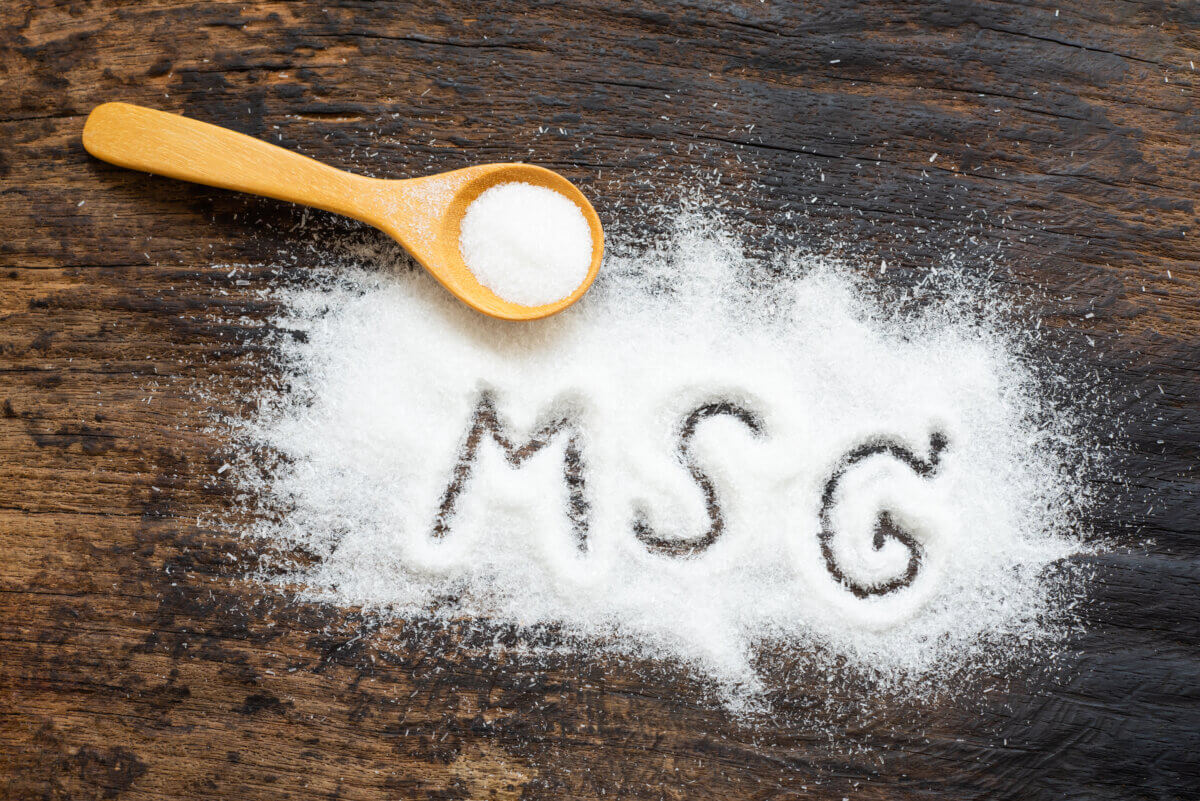Monosodium Glutamate (MSG) has been an age-old flavor enhancer in food, bringing out umami for close to a century now. For some time, however, people have been viewing it as a bad ingredient that is best avoided. So, is it actually harmful?
What is MSG?
Monosodium Glutamate (MSG) is the sodium salt of glutamic acid, an amino acid that our body produces on its own. The salt is a white and odorless crystalline powder. MSG is also highly water soluble, meaning it dissolves well into water and breaks down into sodium and free glutamate. The flavor enhancer consists of fermented starches or sugars such as sugar beet, sugar cane, and molasses. Glutamic acid is also found naturally in foods like tomatoes and walnuts. Our body will process the acid in the same way whether it comes from a tomato or a sauce with MSG. In Asian cooking and highly processed snack foods, MSG is a popular additive.
MSG is able to bring out flavors in dishes by making your mouth water by promoting salivary secretions. This can ultimately help food taste better. Studies have also shown that umami-rich dishes can decrease the desire to add additional salt to food. As such, research has begun to show that replacing MSG with salt can lower people’s overall intake. Excessive sodium intake is linked to high blood pressure, heart disease, and stroke.
Why do people think it’s bad?
MSG got its bad reputation in the 1960s when Chinese-American doctor Robert Ho Man Kwok wrote a letter to the New England Journal of Medicine explaining that he got sick after eating Chinese food. Kwok’s symptoms quickly became associated with “Chinese restaurant syndrome.” For some time, many within the medical community reportedly used the letter to promote racist rhetoric and jokes about it. After this, studies started to come out suggesting that the substance was neurotoxic, linked to obesity, and promoted metabolic dysfunction.
However, there are many reasons to question the accuracy of these studies:
- a lack of appropriate control groups
- small sample sizes
- flaws in methodology
- the use of extremely high doses that don’t reflect what people normally eat
- the administration of MSG through routes like injections, which also doesn’t reflect typical intake patterns
According to the Food and Drug Administration (FDA), MSG is generally recognized as safe. As of now, current research suggests that MSG does not pose a significant risk to people who eat it in moderation.

What are MSG sensitivities?
MSG system complex refers to a group of symptoms that some people might experience after eating MSG. This could include headache, muscle aches, dizziness, and trouble breathing. It’s estimated that under one percent of the general population experiences this. There is little research on this, so it’s difficult to come to solid conclusions. Additionally, there aren’t any tests for MSG symptom complex.
Foods with the highest amount of MSG
- Fast food
- Snack foods like Doritos
- Seasoning condiments
- Processed meats like pepperoni and sausage
- Soy sauce
Bottom Line
MSG is added to many foods to bring out the flavors, but it also is naturally-occurring in foods like tomatoes and cheese. Once considered highly toxic, the additive has received shady criticism in the past that isn’t fully rooted in fact. So far, research shows that for most people, it isn’t a significant health threat. However, foods that commonly have it such as chips and processed meats should be limited for reasons such as excessive fat, salt, or refined carb intake as these are more closely linked with adverse health outcomes than MSG.
You might also be interested in:
- MSG linked to migraines? Chemical used in processed food could trigger brutal headaches
- Best Chinese Food: Top 5 Dishes Most Beloved By Experts
- Sleep and snacks: Junk food may prevent you from getting quality rest


MSG is a serious nerve toxin for me! If I accidentally consume MSG it puts my life as well as others life in danger! As well as causing great pain through out my nervous system, it puts me to sleep even if driving 70 miles an hour on a highway! When I wake up I have lost co-0ordination of my musculature system for at least an hour, blurry vision as well!
I don’t know what your study found, but it is a crime to put MSG in food with out making it well known to those who might consume it without being advised in advance the food they are ordering contains MSG! I hope you listen and take me seriously!
MSG in Chinese fast food makes my heart race and palpitate. And I absolutely love Chinese fast food.
I find the above article completely misinforming and dangerous. Dr. Russell Blaylock, a retired neurosurgeon, spent a lot of his life studying this subject of excitotoxins. He links MSG to Parkinson’s and other brain destructive diseases. This is well documented. MSG is dangerous even in relatively small amounts if taken on a regular basis. Dr. Blaylock’s monthly newsletter, “Blaylock Wellness Report” is well worth the small amount of money that it costs. He teaches people how to live longer.
This is what l believe if MSG. is harmful to the body why these Chinese continue to adding this junk to. our food when it not necessary it not healthy. that the reason why l stop eating Chinese food I find their food never fresh it out dated *Indian food is the best meals any one can eat. they are very careful how they prepare food for the public it is very delicious and clean